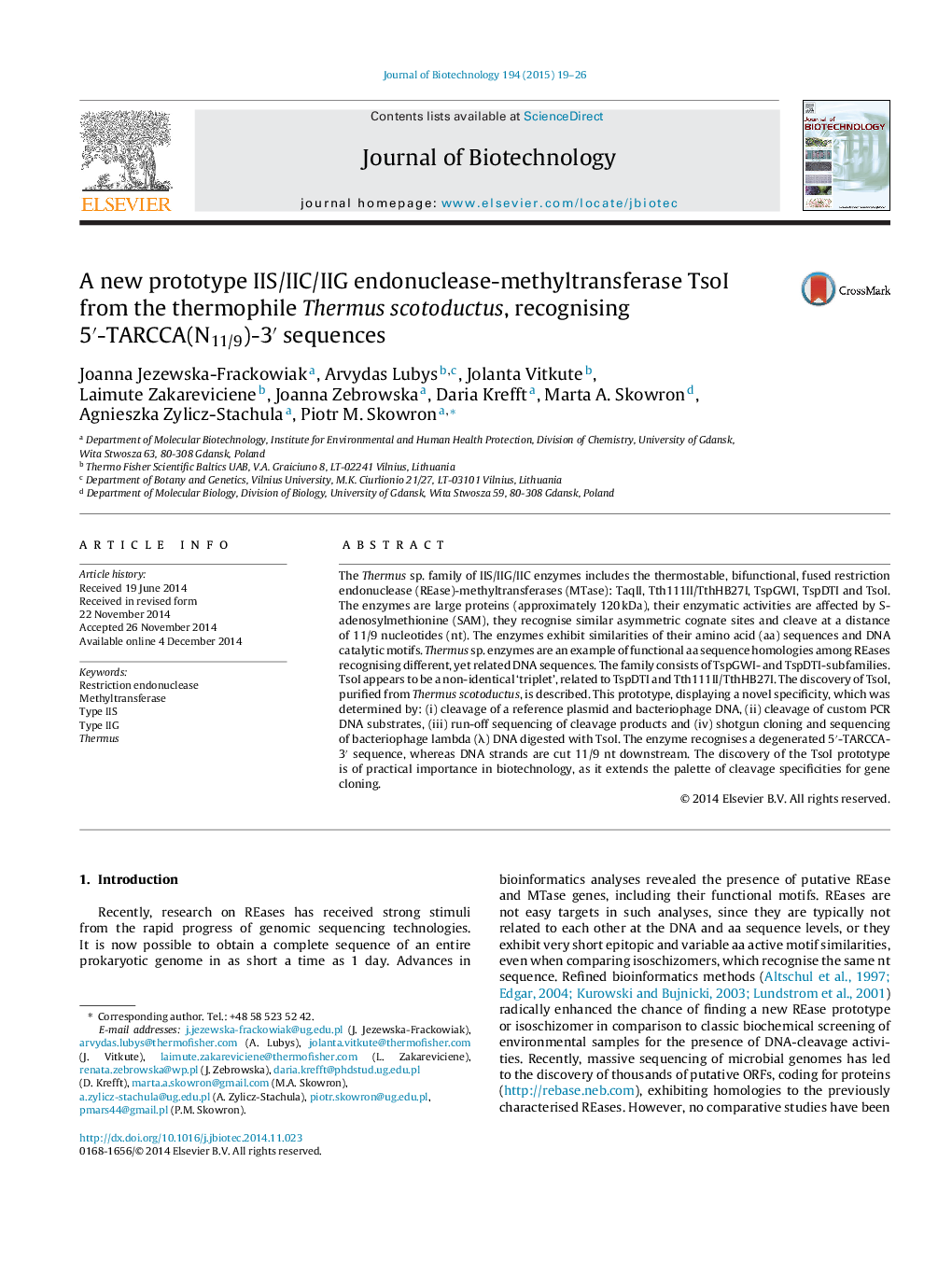| Article ID | Journal | Published Year | Pages | File Type |
|---|---|---|---|---|
| 6491240 | Journal of Biotechnology | 2015 | 8 Pages |
Abstract
The Thermus sp. family of IIS/IIG/IIC enzymes includes the thermostable, bifunctional, fused restriction endonuclease (REase)-methyltransferases (MTase): TaqII, Tth111II/TthHB27I, TspGWI, TspDTI and TsoI. The enzymes are large proteins (approximately 120 kDa), their enzymatic activities are affected by S-adenosylmethionine (SAM), they recognise similar asymmetric cognate sites and cleave at a distance of 11/9 nucleotides (nt). The enzymes exhibit similarities of their amino acid (aa) sequences and DNA catalytic motifs. Thermus sp. enzymes are an example of functional aa sequence homologies among REases recognising different, yet related DNA sequences. The family consists of TspGWI- and TspDTI-subfamilies. TsoI appears to be a non-identical 'triplet', related to TspDTI and Tth111II/TthHB27I. The discovery of TsoI, purified from Thermus scotoductus, is described. This prototype, displaying a novel specificity, which was determined by: (i) cleavage of a reference plasmid and bacteriophage DNA, (ii) cleavage of custom PCR DNA substrates, (iii) run-off sequencing of cleavage products and (iv) shotgun cloning and sequencing of bacteriophage lambda (λ) DNA digested with TsoI. The enzyme recognises a degenerated 5â²-TARCCA-3â² sequence, whereas DNA strands are cut 11/9 nt downstream. The discovery of the TsoI prototype is of practical importance in biotechnology, as it extends the palette of cleavage specificities for gene cloning.
Related Topics
Physical Sciences and Engineering
Chemical Engineering
Bioengineering
Authors
Joanna Jezewska-Frackowiak, Arvydas Lubys, Jolanta Vitkute, Laimute Zakareviciene, Joanna Zebrowska, Daria Krefft, Marta A. Skowron, Agnieszka Zylicz-Stachula, Piotr M. Skowron,
